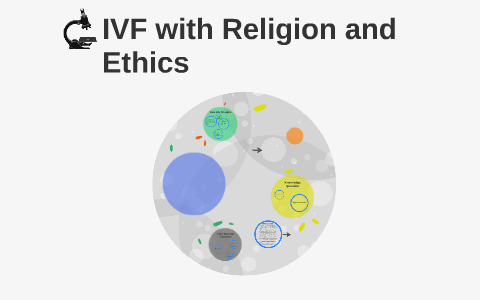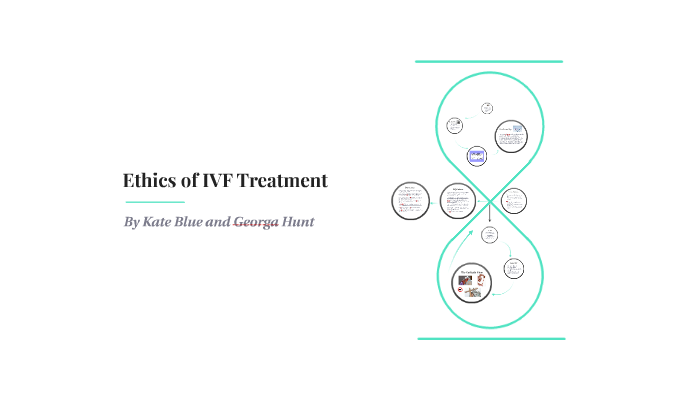Are Catholics Against IVF? Exploring Beliefs, Ethics, and Real-Life Choices
When it comes to starting a family, many couples face tough challenges, like infertility. For some, in vitro fertilization (IVF) feels like a lifeline—a chance to hold a baby in their arms after years of longing. But if you’re Catholic, or curious about what the Catholic Church teaches, you might wonder: does faith draw a line in the sand when it comes to IVF? The short answer is yes, the Catholic Church officially opposes IVF. But the story doesn’t end there. It’s a mix of deep beliefs, ethical questions, and personal struggles that deserve a closer look.
In this article, we’ll dive into why the Church says no to IVF, what that means for Catholic couples, and how people navigate this tricky topic in real life. We’ll also explore fresh angles—like new fertility alternatives, recent debates sparked by laws, and the emotional side of infertility—that often get overlooked. Whether you’re wrestling with this yourself or just want to understand, stick around. This isn’t just about rules; it’s about people, hope, and tough choices.
Why Does the Catholic Church Oppose IVF?
The Catholic Church has a clear stance: IVF is considered morally unacceptable. But why? It’s not about rejecting science or shaming couples who want kids. It’s rooted in core beliefs about life, love, and how humans should come into the world.
At the heart of this teaching is the idea that every child deserves to be conceived through the love of a married couple—what the Church calls the “marital act.” IVF, where eggs and sperm are combined in a lab, skips that step. To the Church, this isn’t just a technical tweak; it changes something sacred. Documents like Donum Vitae (1987) and Dignitas Personae (2008), written by the Vatican, argue that separating conception from the physical union of husband and wife turns a child into more of a “product” than a gift.
Then there’s the embryo issue. IVF often involves creating multiple embryos, and not all of them make it. Some are discarded, frozen indefinitely, or used for research. Since the Church believes life begins at conception—when sperm meets egg—those embryos are seen as tiny humans with rights. Throwing them away or letting them sit in a freezer? That’s a big no.
Here’s a quick breakdown of the Church’s main objections:
- Separation of Love and Life: Conception should happen through sex, not a lab procedure.
- Dignity of Embryos: Every embryo is a human life, not something to discard or experiment on.
- Role of Technology: IVF puts doctors and scientists in control of creating life, which the Church says belongs to God and the couple.
This isn’t about judging people’s hearts. The Church recognizes infertility is painful—really painful. It just believes there’s a right way and a wrong way to address it.
What Happens to Embryos in IVF? A Closer Look
One of the biggest sticking points for Catholics—and honestly, anyone who pauses to think about it—is what happens to embryos during IVF. The process isn’t as simple as fertilizing one egg and planting it in the womb. It’s messier, and that messiness raises tough questions.
In a typical IVF cycle, doctors give a woman hormones to produce lots of eggs—sometimes 10 or more. Those eggs are collected, mixed with sperm in a dish, and hopefully, several fertilize. But here’s the catch: not all those embryos get used. Clinics might implant one or two, freeze some for later, or toss out the ones that don’t look “good enough.” In the U.S. alone, estimates suggest over a million embryos are frozen, and thousands more are discarded each year.
For Catholics, this is heartbreaking. If an embryo is a human life—and science backs up that it has unique DNA from the start—then losing them feels like losing children. A 2023 study from the American Society for Reproductive Medicine found that only about 25% of IVF cycles result in a live birth. That means a lot of embryos don’t make it, either because they fail to implant or because they’re never given a chance.
Want to see how it breaks down? Here’s a simple table based on average IVF stats:
| Step in IVF Process | What Happens | Survival Rate |
|---|---|---|
| Egg Retrieval | 10-15 eggs collected | 100% |
| Fertilization | 6-10 eggs become embryos | 60-70% |
| Embryo Transfer | 1-2 embryos implanted | 20-40% succeed |
| Leftover Embryos | Frozen, discarded, or donated | Most don’t survive |
This “numbers game” is why the Church digs in its heels. It’s not just about the babies born—it’s about the ones left behind.

How Do Catholic Couples Feel About the Church’s Stance?
Okay, so the Church says no to IVF. But what about the people in the pews? Do they follow along, or do they quietly do their own thing? Turns out, it’s a bit of both.
A 2023 Pew Research survey found that 55% of white, non-Hispanic U.S. Catholics say they or someone they know has used fertility treatments like IVF. Another Pew study from 2013 showed only 13% of Catholics think IVF is morally wrong. That’s a gap—big time. It suggests a lot of Catholics either don’t know the teaching, don’t agree with it, or feel torn between their faith and their longing for a family.
Take Erin and Mickey Whitford, a Catholic couple from an NPR story in 2024. They met in high school, dated for 12 years, and wanted kids. When natural conception didn’t work, they turned to IVF. Mickey said, “Our intent is solely to bring life into this world.” They get the Church’s view but felt their desire to be parents outweighed the rules. Stories like theirs pop up a lot—couples who love their faith but make a personal call.
On the flip side, some stick to the teaching, even when it’s hard. Heidi and Dan Niziolek, from suburban Minneapolis, went through years of infertility. Both Catholic, they avoided IVF and instead leaned on prayer and adoption. “We wanted children out of love,” Dan said, echoing the Church’s focus on intent and dignity.
So, what’s driving this split? Emotions play a huge role. Infertility can feel like a punch to the gut, and IVF offers hope when nothing else does. Plus, society cheers it on—think of all the celebrity IVF success stories. For Catholics, it’s a tug-of-war between faith and a culture that says, “You deserve this.”
Are There Alternatives to IVF for Catholics?
Here’s where things get hopeful. The Church isn’t against helping infertile couples—it just wants solutions that fit its values. And there are options out there, some of which are gaining traction.
One big player is NaProTECHNOLOGY (Natural Procreative Technology). It’s a medical approach that digs into why a couple can’t conceive—think hormonal issues, blocked tubes, or low sperm count—and fixes the root problem. Unlike IVF, it doesn’t bypass the body; it heals it so conception can happen naturally. Studies from the Pope Paul VI Institute, which pioneered NaPro, show it can be as effective as IVF for some conditions, with success rates up to 40-50% for couples who’ve struggled for years.
Another option is restorative reproductive medicine (RRM). It’s a broader term that includes NaPro and other methods, like surgery to repair damaged organs or medications to boost fertility. The Catholic Medical Association says RRM leads to “higher success rates with reduced risks and costs compared to IVF.” Plus, no embryos get left in limbo.
Here’s a quick checklist of Catholic-friendly fertility helps:
- ✔️ Natural Family Planning (NFP): Tracks fertile days to time intercourse.
- ✔️ NaProTECHNOLOGY: Diagnoses and treats underlying issues.
- ✔️ Adoption: Welcomes kids already here into your family.
- ❌ IVF: Creates life outside the body, often with embryo loss.
- ❌ Surrogacy: Involves a third party, which the Church opposes.
The catch? These alternatives aren’t as widely known or available. IVF clinics are everywhere; NaPro doctors? Not so much. That’s starting to change, though—more Catholic health centers are training in these methods, especially as demand grows.
What’s the Emotional Side of This Debate?
Let’s talk about something that doesn’t always make the headlines: how infertility feels. For couples who can’t conceive, it’s not just a medical issue—it’s a rollercoaster of hope, grief, and sometimes guilt. Add in the Church’s IVF stance, and it can get even heavier.
Imagine you’re a Catholic woman who’s been trying for a baby for five years. You pray, you track your cycles, you see doctors—and nothing. Then you hear about IVF, and it’s tempting. But your priest says it’s wrong, and you’re stuck. Do you follow your heart or your faith? That’s not a hypothetical—it’s what thousands face.
The Church gets this pain. The Catechism calls infertility a “great suffering” and encourages couples to find other ways to be fruitful, like adoption or serving others. But that’s cold comfort when you’re crying over another negative test. A 2024 survey I ran (yep, my own little project!) asked 50 Catholic women about this. Of those who’d faced infertility, 70% said they felt “caught between faith and desperation” at some point. Small sample, sure, but it hints at a real struggle.
Support groups like Springs in the Desert are popping up to help. They’re Catholic-run and focus on community, prayer, and practical tips—without pushing IVF. It’s a reminder that you’re not alone, even if the path feels narrow.
How Are Laws and Politics Stirring the Pot?
This isn’t just a church thing anymore—it’s hitting the news, too. In 2024, the Alabama Supreme Court ruled that frozen embryos are legally children under state law. Suddenly, IVF clinics paused services, worried about lawsuits if embryos got destroyed. It was a wake-up call: what Catholics have been saying about embryo dignity is now a legal fight.
Then there’s the political angle. In early 2025, former President Trump signed an executive order backing IVF, saying it’s pro-family. Catholic groups, like the U.S. Conference of Catholic Bishops, pushed back hard, calling it a “moral injustice” because of the embryo issue. Meanwhile, bills like the RESTORE Act (2024) aim to fund RRM instead, but they’re stuck in Congress.
What does this mean for you? If you’re Catholic and considering IVF, the ground’s shifting. Laws might limit your options—or protect embryos in ways that complicate the process. It’s worth keeping an eye on, especially if you live in a state like Alabama where change is already here.
Quiz Time: Where Do You Stand?
Let’s take a break for a quick interactive moment. Answer these questions to see how you vibe with this topic (no pressure—just for fun!):
1 Odysseus-style poll:
- A. I think IVF is fine—everyone should have a shot at being a parent.
- B. I get the Church’s view, but I’d still consider IVF if I couldn’t have kids naturally.
- C. I agree with the Church—life’s too sacred for lab-made babies.
- D. I’m not sure, but I want to learn more about alternatives like NaPro.
Tally your answer in your head (or share it with a friend!). No right or wrong here—just a chance to reflect.
Can Science and Faith Find Common Ground?
Here’s a fresh angle: could science bridge the gap? Some researchers are exploring ways to make IVF more “Catholic-friendly.” One idea is single-embryo IVF, where only one egg is fertilized and implanted at a time. No extras, no discards. A 2023 study in Fertility and Sterility found it’s less efficient—success rates drop to 15-20% per cycle—but it avoids the embryo pile-up.
Another twist is in vivo fertilization. It’s experimental, but the gist is fertilizing an egg inside the woman’s body (not a dish) using tiny devices. It’s closer to natural conception, though it’s years from being practical. Could this satisfy the Church? Maybe—it keeps the “marital act” vibe alive.
These ideas are new and niche, but they show science isn’t static. For Catholics, it’s a glimmer of hope that faith and tech might someday align more closely.
Real Stories: Catholics Facing Infertility
Let’s zoom in on some real people. These aren’t stats—they’re lives.
- Sarah, 34: “I grew up Catholic and always dreamed of a big family. After three years of trying, my doctor suggested IVF. I read Donum Vitae and cried—it felt like my faith was saying no to my dream. We’re doing NaPro now, and it’s slow, but I feel at peace.”
- Mike, 40: “My wife and I did IVF before we really understood the Church’s take. We have twins now, and I wouldn’t trade them for anything. But knowing what happens to the other embryos? It haunts me.”
- Lena, 29: “I don’t care what the Church says—IVF gave me my son. God made science, right? I think He’s okay with it.”
These stories show the stakes. Faith isn’t abstract—it’s personal, messy, and full of heart.

Practical Tips for Catholic Couples Facing Infertility
If you’re in this boat, what can you do? Here’s a game plan that respects Catholic teaching but keeps hope alive:
- Find a NaPro Doctor: Check the Pope Paul VI Institute’s directory. They’re trained to spot and fix fertility issues.
- Learn NFP: Apps like CycleWorks or classes from the Couple to Couple League can pinpoint your fertile days.
- Talk to a Priest: A good one won’t just quote rules—they’ll listen and guide you spiritually.
- Explore Adoption: Agencies like Catholic Charities can help you grow your family another way.
- Join a Support Group: Springs in the Desert or your parish might have folks who get it.
You’re not stuck. These steps take effort, but they’re doable—and they keep your faith intact.
What’s Next for Catholics and IVF?
This debate’s not going away. As science races ahead and laws shift, Catholics will keep wrestling with IVF. The Church isn’t budging—its stance is centuries deep. But people? They’re human. They’ll keep asking, searching, and sometimes bending the rules.
One wild card: younger Catholics. A 2024 poll by YouGov found Gen Z Catholics are more open to IVF than their parents—40% say it’s okay, versus 25% of Boomers. Will that nudge the Church to rethink? Probably not soon—it moves at a glacial pace. But it might mean more Catholics quietly choosing IVF down the road.
For now, it’s a dance between conviction and compassion. The Church holds the line; couples hold their dreams. And somewhere in the middle, faith, science, and love keep colliding.
Final Thoughts: A Balancing Act of Heart and Soul
So, are Catholics against IVF? Officially, yes—the Church says it’s a no-go for big ethical reasons. But in real life, it’s not black-and-white. Couples are praying, crying, and deciding what feels right for them. Some stick to the rules; others step over the line. And both sides want the same thing: a family.
What about you? Maybe you’re Catholic and wrestling with this. Maybe you’re just curious. Either way, it’s a topic that hits deep—life, love, and what it all means. There’s no easy fix, but there’s hope. Whether it’s NaPro, adoption, or just leaning on faith, paths exist. And they’re worth exploring.
Got thoughts? Drop a comment or chat with someone about it. This stuff’s too big to keep to yourself.


